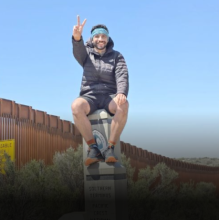
By Habib Toumi
MANAMA: As countries are easing restrictions imposed to mitigate the spread of the coronavirus, places of worships are also slowly opening up, but with precautions.
Mosques, churches, synagogues and temples, with large open space that accommodates hundreds and even thousands of people, have been thinking of ways to limit the possibility for congregations to come close together physically.
In some mosques in Saudi Arabia where prayers will resume after weeks of suspension, worshippers will have to follow marks on the carpets where they can stand, two meters away from the next person as decided by the authorities in charge of fighting the coronavirus.
In some mosques, the distance was determined by no-man’s areas while in others, feet marts were placed to show people where to stand and pray behind the imam.

In Makkah and Medina, the most venerated mosques for Muslims, prayer mats were placed two meters apart on the floor and worshippers used them without the possibility of moving them.
In Florence, Italy, the authorities at The Cathedral of Santa Maria del Fiore (Duomo), one of the world’s most visited churches, are welcoming visitors with wearable social distancing necklaces.
The device will be handed out for free at the beginning of each visit. When two people approach within a range of 2 meters, the device will beep softly, vibrate and flash, the Duomo said in a statement.
“First in the world to use it in the museum context, this system guarantees the maximum of security and comfort during the visit,” it said.
The devices will be disinfected after each use.

Timothy Verdon, director of the Duomo Museum, said the visits to the monuments and museum would be for a reduced number of people.
“During this initial period, visits will be free. It’s a gesture, to welcome people once again,” he said.
One church in the U.S. adapted the gospel in your automobile. Rock Church, an evangelical congregation in Virginia Beach, offered drive-in worship services to members meeting in the parking lot.
In India, a Hindu temple, Mahavir Mandir in Patna, has come up with a new rule. Once the temple, closed on March 25 as part of the nationwide lockdown, reopens, people will only be allowed to visit during specific time slots based on the alphabetical order of their names.




